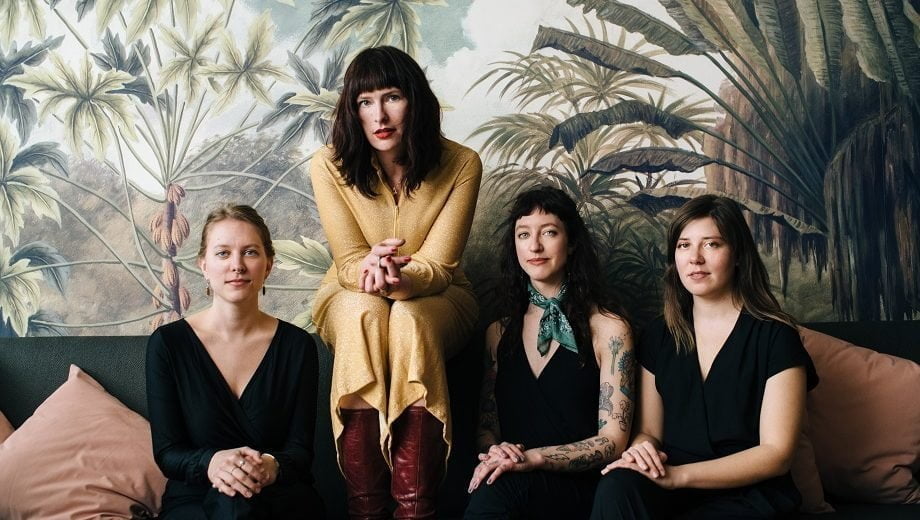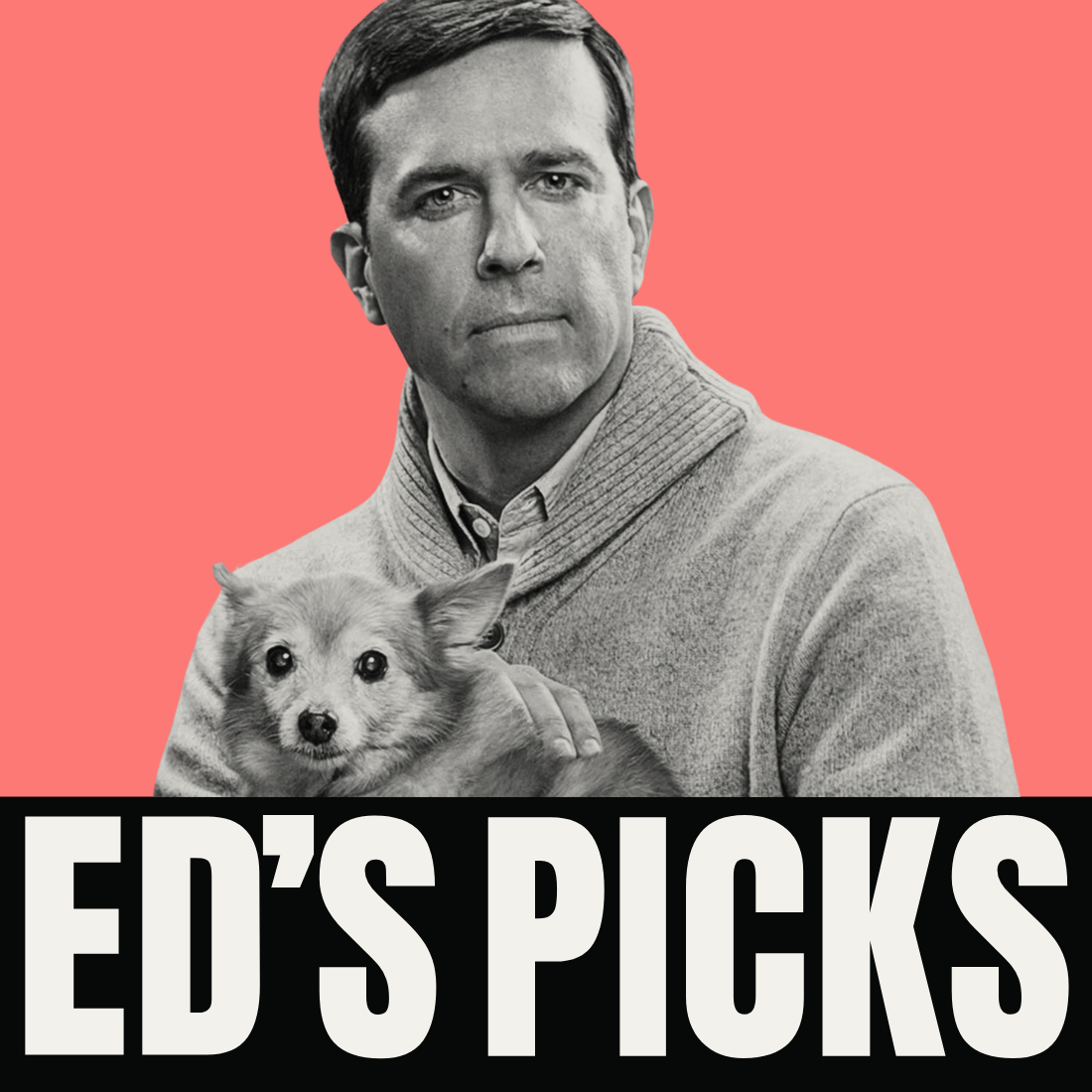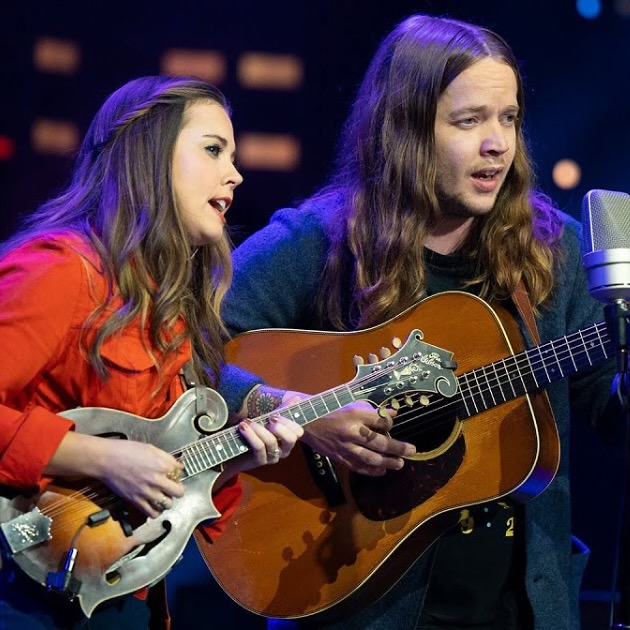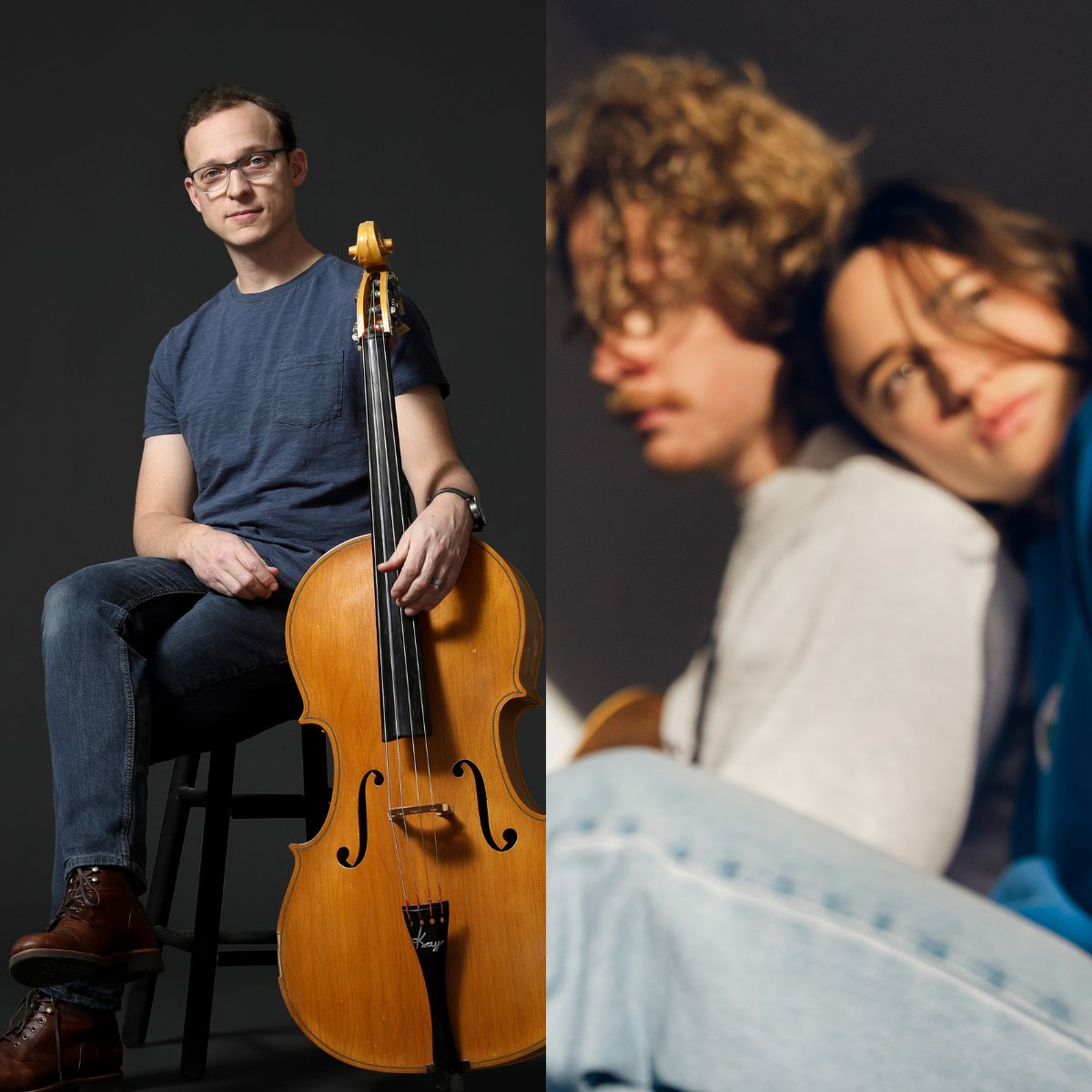Artist: Her Crooked Heart
Hometown: Minneapolis, Minnesota
Latest album: To Love To Leave To Live
Personal nicknames (or rejected band names): My choir calls me ‘Coach Racket’ or just Coach which is super sweet. (My sister calls me Racket because I make noise, despite being a generally quite quiet person).
What’s your favorite memory from being on stage?
I’m the founding director and choral arranger for a weirdo charming 60-voice indie choir in the Twin Cities. For our first season finale, I arranged a backup choir part for a song of mine called “Ghost” off my last album, Ghost of a Gardener. That moment there on the Icehouse stage [a venue in Minneapolis], when the outro hit and all the vocals coalesced into one determined statement of faith in humanity and purpose — holy is the best way I can describe it. I’ve never felt so proud, satisfied, gratified, faithful, boundless on stage.
What other art forms — literature, film, dance, painting, etc. — inform your music?
I very much enjoy using my hands to create things I find beautiful and pleasing – from linocut prints, hand-sewn CD sleeves, detailed pencil portraits, to homemade rhubarb sour cherry jam… While I can’t say these art forms inform my music, I steadily strive to find ways to merge the various expressions with my music. I make handmade editions of releases, draw portraits of my patrons from time to time, make jam to sell at the merch table… I used to be a fairly unhappy monochrome musician. It’s helped me immensely to find ways to bring more of my entire self to this music-presenting table.
What was the first moment that you knew you wanted to be a musician?
I have no idea what led up to this moment, but I clearly remember being a 4-year-old, the youngest daughter of Mennonite medical missionaries in Zaire, sitting on Sue’s lap in our little house in the village. She was my friend, minder, and a fellow mission-worker. I gazed up at her (I adored her) and declared “I wanna be a singer when I grow up.” I have no idea where that came from and why. But it sure stuck. It’s been my engine of purpose; my wheel of longing for as long as I have memory.
What’s the toughest time you ever had writing a song?
Ah the toughest time… When I was living in a relationship I knew in my core was not right for me; for either of us. The denial was deep and I wouldn’t let myself see it clearly, let alone articulate it. During that time, whenever I’d sit down to write a song, it was as if I’d lifted a manhole cover and this dark demon snarl of “Get me out / Run / Abort! Abort!” was trying to rush out and burn my life to the ground. So I’d quickly slam the cover back down and do something, anything else. Curiously, once I’d finally been honest, all those snarling sad song fumes just… vanished. They dissolved into the ether and I finally had songs again.
How often do you hide behind a character in a song or use “you” when it’s actually “me”?
Almost never. And if I do, it’s an intentional choice with a reveal at the end when the pronoun switches to ‘I’ and I claim my role within the song. If memory serves, I’ve played this card a few times, though, so I might have used up that hand…
But this links up with something quite important to me in songwriting – attempting to articulate universals with emotionally resonant specificity. “Pleasant Valley Reservoir” describes the day I got dumped and willfully got lost driving the backroads of Vermont. It ends with the lyric, sung almost as a dare: “Am I lost if it’s where I choose to be?” I’m the ‘I’ but that’s totally for us. It’s one of my favorite lines to deliver live. If I’ve done my job, I swear I can almost hear the click of recognition in the audience. Pronouns are wonderfully mutable at times.
Photo credit: Nate Ryan



